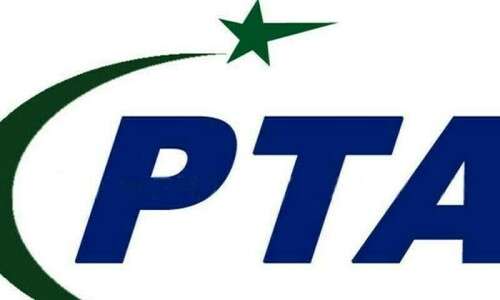The Pakistan Telecommunication Authority (PTA) has recently announced a major development in enhancing Pakistan’s international internet connectivity through the installation of a new submarine cable system. This project is expected to bolster the nation’s telecommunications infrastructure and provide improved connectivity, addressing the growing demand for reliable and faster internet.
Background: Pakistan’s Internet Slowdown Crisis
For months, Pakistan has faced widespread internet slowdowns, disrupting daily activities such as work, education, and entertainment. On August 21, the PTA attributed the slowdown to a “faulty submarine cable,” which caused severe disruptions to the country’s internet services. The situation sparked criticism from both lawmakers and the public, especially as users experienced prolonged outages and decreased speeds.
PTA’s Response and Timeline of Developments
Following the announcement of the slowdown, the PTA clarified that no new firewalls were being installed, as many had speculated. To further address the concerns raised by the public, the Islamabad High Court Chief Justice Aamer Farooq described the government’s report on the internet slowdown as unsatisfactory. He summoned the member technical of the Ministry of Information Technology for further clarification.
In late August, the PTA assured the nation that the internet services would likely remain slow until early October. This was due to the anticipated repair work on the damaged submarine cable responsible for the disruptions. The repair process, as confirmed by the PTA, was expected to restore normal internet speeds by early fall.
The Game-Changing 2Africa Submarine Cable System
In light of the ongoing connectivity issues, the PTA has now shifted focus toward a long-term solution. The telecom authority has announced a groundbreaking development, as it works with Transworld Associates to connect Pakistan to the 2Africa submarine cable, one of the world’s largest and most advanced international cable systems.
The 2Africa cable is a monumental project that spans an impressive 45,000 kilometers, connecting 46 locations across Africa, Europe, and the Middle East. With a capacity of 180Tbps, enabled by cutting-edge SDM1 technology, this cable will enhance Pakistan’s international telecommunications infrastructure significantly. The 2Africa cable is supported by a global consortium of prominent partners, including Meta (formerly Facebook) and Vodafone.
The Project’s Timeline and Phases
The 2Africa project is set to go live in Pakistan by the fourth quarter of 2025. The project’s rollout will be conducted in two phases:
- Phase 1: Pre-Lay Shore End (PLSE) Installation
The first phase of the project began on December 1, 2024, with the installation of the Pre-Lay Shore End (PLSE) at Hawksbay, Karachi. This initial phase is critical to preparing the infrastructure needed to lay the cable along the sea bed. - Phase 2: Deep-Sea Cable Installation
The second phase, which involves the deep-sea cable laying, is set to begin on April 1, 2025. This phase will see the actual undersea cable being laid down, linking Pakistan to the broader 2Africa cable network.
Impact on Pakistan’s Internet Services
The addition of the 2Africa cable system is expected to significantly improve Pakistan’s international internet connectivity. By offering higher bandwidth and more reliable transmission routes, the system will help alleviate the slowdowns that have plagued the country. With the increasing demand for data-heavy applications such as online gaming, video conferencing, and remote work, the enhanced connectivity is expected to provide a smoother and more stable internet experience for users across the nation.
By connecting Pakistan to a high-capacity, global cable system, the PTA is taking a proactive step to ensure that the country’s internet infrastructure can keep pace with growing demands. The 2Africa cable is poised to bring lasting improvements to Pakistan’s international data traffic, facilitating better and faster connections with the rest of the world.
Addressing the Long-Term Connectivity Challenges
Although the 2Africa project represents a major leap forward for Pakistan, there are still underlying challenges that must be addressed. These include the maintenance of existing infrastructure, the need for upgrades to local last-mile connections, and ensuring that all areas of Pakistan benefit equally from enhanced internet services. The PTA’s collaboration with global partners is a crucial component of a comprehensive approach to improving Pakistan’s overall connectivity.
Moreover, the development of local infrastructure, including the expansion of broadband networks and 4G/5G technology, will also be vital to ensuring that the benefits of the new submarine cable system are fully realized. In addition to international cables, a robust local network is essential for delivering high-speed internet to end users.
Challenges and Future Outlook
While the 2Africa cable system offers exciting prospects, it is important to recognize that the installation of undersea cables is a time-intensive process. Even though Phase 1 of the project is underway, users may continue to experience slow internet speeds for several months. The completion of the project will not only depend on the physical laying of the cables but also on the broader infrastructure enhancements necessary to make full use of the increased bandwidth.
As the cable becomes operational, Pakistan will also need to monitor the impact on internet pricing, service reliability, and overall user experience. Given the rapid global advancements in internet technology, it will be crucial for Pakistan to keep up with innovations and continuously improve both local and international connectivity to remain competitive in the global digital economy.
FAQs:
1. When will the 2Africa submarine cable be operational in Pakistan?
The 2Africa cable is expected to go live in Pakistan by the fourth quarter of 2025.
2. What is the capacity of the 2Africa submarine cable?
The 2Africa submarine cable offers a massive 180Tbps capacity, using SDM1 technology to support high-speed data transmission.
3. How will the 2Africa cable improve Pakistan’s internet connectivity?
By increasing bandwidth and reducing latency, the 2Africa cable will enhance internet speeds and reliability, providing smoother connections for data-heavy applications like video conferencing and gaming.
4. What are the phases of the 2Africa cable project in Pakistan?
Phase 1, the Pre-Lay Shore End (PLSE) installation, began in December 2024, with Phase 2, the deep-sea cable lay, starting in April 2025.
5. Will the 2Africa cable address all of Pakistan’s internet slowdown issues?
While the 2Africa cable will improve international connectivity, local infrastructure and last-mile connectivity upgrades are also necessary to fully realize its benefits.
ALSO READ
https://flarenews.pk/2024/12/24/undersea-cable-to-boost-internet-speeds-a-solution-to-slowdowns/



